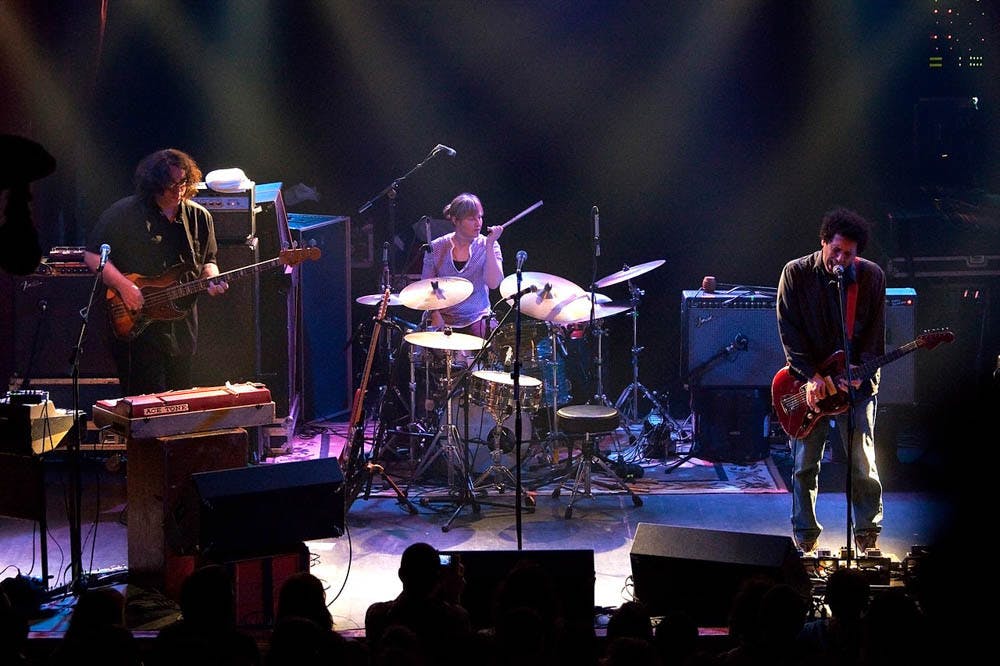Tuesday night, fans filled Columbus Theater to see 90s indie rock band Yo La Tengo — the creation of New Jersey husband-and-wife duo Ira Kaplan and Georgia Hubley — perform simple, sleepily ambivalent love songs and encourage audience members to exercise their civic duties.
Started in 1984 by Kaplan and Hubley (now ages 61 and 58, respectively), Yo La Tengo is a 30-year-old sonic experiment with a major cult following that doesn’t seem to be slowing down anytime soon. The band has released an album every year since 2013, each of which has defied the contemporary era’s indie archetype by staying faithful to the outfit’s emotional moorings. The couple’s newest album, released March 16 with Matador Records, is called “There’s a Riot Going On” — a coy reference to the 1970s funk band Sly and the Family Stone’s cynical, political album by the same name. Tinged with gentle philosophical undertones, the album contains tracks like “She May, She Might” and “For You Too” that offer the listener a what-will-be-will-be sense of acoustic understanding.
“I am just some guy / Maybe I could be that guy?” sings Kaplan softly in “For You Too,” a song whose operative word is “maybe.”
Yo La Tengo is a tight act on stage — serious and utilitarian in the way it handles its instruments. There’s no “How are we doing tonight, Providence?” fanfare when the band opens; the lights flick on and the pair begins digging into a long instrumental piece that incorporates gutteral howls, radio static and the buzzing of cicadas as it builds. When Kaplan begins to sing muted lyrics in his mid-century-documentary-narrator voice, the crowd goes wild. An elderly woman in front of me whispers to her neighbor, “Is that other guy playing a massive violin?”
The “other guy” she referenced is James McNew — Yo La Tengo’s 14th bassist. He’s been with the band since 1992 and is sometimes credited for establishing them as a contemporary genre mainstay.
After a half dozen songs, Kaplan finally addressed the audience — “Providence! It’s been a while since I’ve been here. Maybe it will be a while till I come back,” he said with characteristic ambivalence. Comically awkward, all of his sentences tumbled out lopsided:
“When I was in middle school there were these footlights on our stage,” he said, pointing to the footlights at the edge of the stage.
“Kind of like these footlights here, so I’m distracted. Were there footlights in your schools?”
No one responded.
Though the band is most often lauded for its ability to manufacture tranquility and, in the words of Pitchfork writer Ed Harvey, “sonic care,” it clearly has some serious rock-and-roll chops. In the second half of the set, it played early headbanger favorites like “Sugarcube,” and Kaplan’s electric guitar-playing defied what one might think realistically possible. Crouching, Kaplan held the guitar upside down and waved it around as he played, looking more like a contortionist than Slash.
After the band said goodnight and exited the stage, the crowd cheered them back on only to receive a strangely executed talking-to, which preceded the band’s cover of Sun Ra’s “Nuclear War.”
“I’m not really sure what elections you have going on here,” Kaplan said. “But I’m going to take this opportunity to attempt to tell people to vote.”





